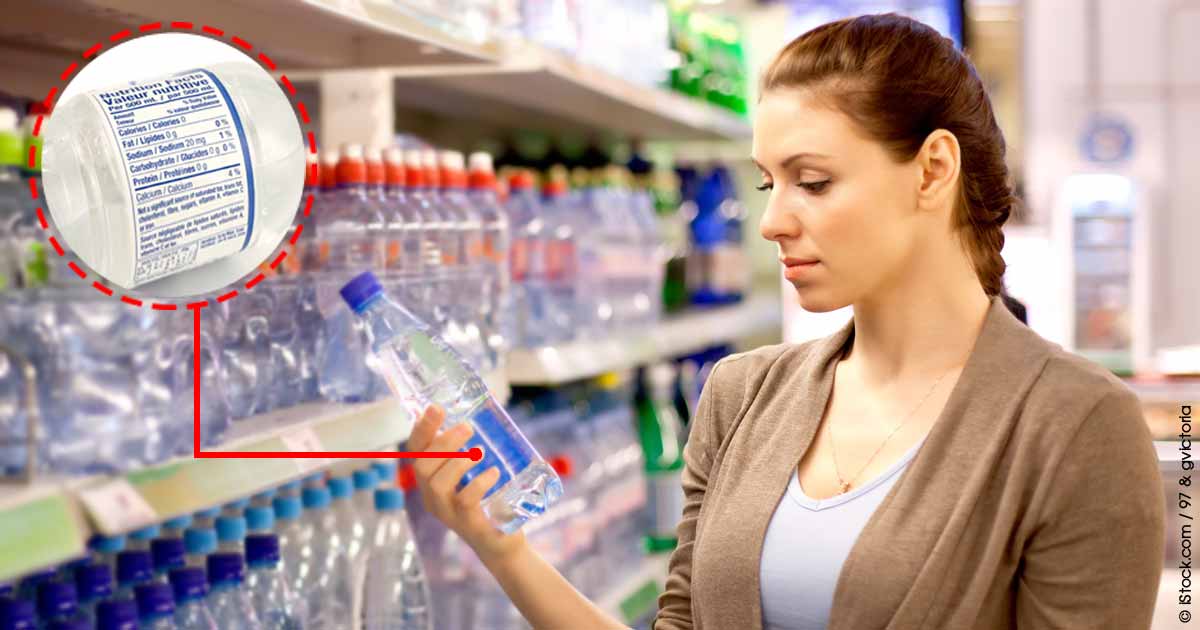
Dr Mercola
The Environmental Working Group (EWG) analyzed the company websites and product labels of over 170 varieties of bottled water to see if the companies disclosed information on where water came from, how the water was treated, and whether the results of tests to ensure purity were revealed.
The researchers also called the bottled water companies to see if they would willingly give information to consumers.
More than half of the bottled water products failed the transparency test. Almost 20 percent didn't say where their water comes from, and an additional 32 percent did not disclose any information on treatment or purity of water.
According to Yahoo Green:
"Only three brands earned the highest possible... Gerber Pure Purified Water, Nestle Pure Life Purified Water, and Penta Ultra-Purified Water...
[S]ix brands got the worst marks in EWG's report... Whole Foods Italian Still Mineral Water, Vintage Natural Spring Water, Sahara Premium Drinking Water, O Water Sport Electrolyte Enhanced Purified Drinking Water, Market Basket Natural Spring Water, and Cumby's Spring Water."
First of all, the bottle manufacturing process itself releases toxic compounds like nickel, ethylbenzene, ethylene oxide and benzene, and the amount of oil used to make plastic water bottles could fuel a million cars annually.
Then you have the transportation of these bottles, back and forth across the globe. A lot of miles have been covered by the time you pick up that bottle from the store shelf and haul it back to your house. But their travels don't end there. As explained in the video above, many of our non-recycled water bottles are AGAIN shipped overseas to be dumped as waste in less affluent nations…
According to the most recent report by The Association of Postconsumer Plastic Recyclers,2 only 28 percent of water bottles are currently recycled in the US. What happens to the rest of them?
They end up in:
- Landfills, where they can remain for thousands of years, leaching toxins into the ground
- Incinerators, where the chemicals are released into the air
- Oceans, where they slowly disintegrate into tiny particles, turning portions of our waters into a plastic stew. In this way plastic also enters the food chain, and kills wildlife
Why Pay 1,900 Times More for... Nothing?
In light of the fact that you really don't get anything "more" for your money when you splurge on bottled water, why would you continue buying it?
The bottled water industry vehemently denies the claims that they've "manufactured demand," stating they're simply giving consumers what they want.
But honestly, unless people were convinced that tap water was unfit to drink and that bottled water was pure, that consumer demand would surely vanish. The Environmental Working Group ends their report with the recommendation to drink filtered tap water.
I agree.
The caveat though is to make sure you filter your tap water. I've written a large number of articles on the hazards of tap water, from fluoride to dangerous chemicals and drugs, to toxic disinfection byproducts and heavy metals, so having a good filtration system in place is more of a necessity than a luxury in most areas. Another option to consider is to bottle your own water from a gravity-fed spring.
There's a great website called FindaSpring.com where you can find natural springs in your area. This is a great way to get back to nature and teach your children about health and the sources of clean water. The best part is that most of these spring water sources are free!
Remember to bring either clear polyethylene or glass containers to collect the water so no unsafe chemicals can contaminate your water on the way home. If you choose to use glass bottles, be sure to wrap them in towels to keep them from breaking in the car.
Your Best Water Filtration Options
A whole house water filter is your best bet, as it will remove harsh chlorine byproducts from your whole house. These toxins pose a health hazard not only in your drinking water, but also in your shower and appliances.
The best option for your home's drinking water is to filter at the point of use with an NSF certified water filter. This addresses all of the chemicals found in well water or an urban water supply, along with any lead that might leach into the water if you have old plumbing.
Ideally, you'll want to consider both a whole house filter and a point of use filter on your kitchen tap. This covers all the bases for protecting your appliances from harsh chlorine and chlorine byproducts, protecting your lungs from airborne water contaminants that come from the shower, and protecting your tap water from all contaminants that both arrive at your house and are added by your own plumbing.
Unfortunately, adding both of these filters may be cost prohibitive for some families. In that case, you may actually want to consider limiting the duration of your shower, as a seven-minute hot shower will expose your body (through your lungs and skin absorption) to more toxins than drinking a gallon of unfiltered tap water!
That said, ensuring a safe, pure, supply of drinking water for your family should be at the very top of your list.
No comments:
Post a Comment